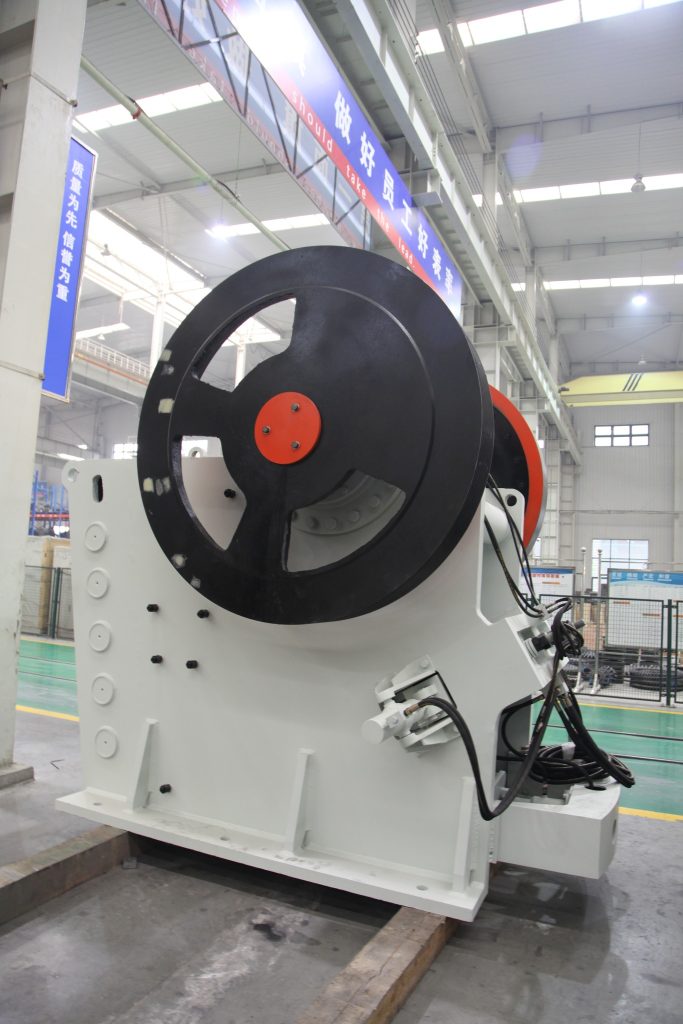Common Issues Associated with Jaw Crushers and Their Solutions
Jaw crushers are widely used in the mining and construction industries for crushing large rocks and stones into smaller pieces. Despite their robustness and efficiency, jaw crushers can encounter several common issues that can affect their performance. Understanding these issues and knowing how to address them is crucial for maintaining the productivity and longevity of the equipment.
Uneven Wear of Jaw Plates
One of the most common problems with jaw crushers is the uneven wear of the jaw plates. This can be caused by several factors, including the feed material not being evenly distributed, the hardness of the material, and incorrect machine settings. Uneven wear can lead to reduced crushing efficiency and increased operational costs.
Solution: Regular inspection and maintenance are essential. Ensure that the feed material is evenly distributed across the jaw plates. Using wear-resistant materials for the jaw plates can also extend their lifespan. Additionally, adjusting the crusher settings and monitoring the wear patterns can help mitigate this issue.

Blockages in the Crushing Chamber
Blockages can occur when oversized material or uncrushable objects enter the crushing chamber. This can cause the crusher to stall, leading to downtime and potential damage to the machine.
Solution: Implement a pre-screening process to remove oversized material before it enters the crusher. Regularly inspect the feed material and use a metal detector to prevent uncrushable objects from entering the chamber. Ensuring a consistent feed rate can also help prevent blockages.
Bearing Failures
Bearings are critical components of jaw crushers, and their failure can lead to significant operational issues. Common causes of bearing failure include inadequate lubrication, contamination, and excessive load.
Solution: Regularly check and maintain the lubrication system to ensure the bearings are adequately lubricated. Use high-quality lubricants and replace them at recommended intervals. Prevent contamination by using proper seals and keeping the crusher environment clean. Monitoring bearing temperatures and vibrations can help detect early signs of failure.
Excessive Vibration
Excessive vibration can be caused by an imbalance in the rotor, worn bearings, or loose parts. It can lead to structural damage to the crusher and reduce its efficiency.
Solution: Conduct regular inspections to identify and fix imbalances or worn components. Ensure all bolts and parts are securely fastened. Balancing the rotor and replacing damaged bearings can significantly reduce vibration levels. Using vibration dampening materials can also help mitigate this issue.
Low Production Output
Low production output can result from various factors, including incorrect machine settings, wear and tear of components, or feeding the crusher with unsuitable materials.
Solution: Optimize the crusher settings according to the material being processed. Regularly inspect and replace worn components, such as jaw plates and bearings. Ensure that the feed material is appropriate for the crusher and does not contain excessive fines or moisture.
Overheating of the Crusher
Overheating can occur due to inadequate lubrication, excessive load, or poor ventilation around the crusher. It can lead to premature wear and failure of components.
Solution: Maintain a proper lubrication schedule and ensure that the lubricant is of the right grade and quantity. Avoid overloading the crusher by controlling the feed rate and material size. Improve ventilation around the crusher to dissipate heat more effectively.
Electrical Issues
Electrical problems, such as faulty wiring or motor issues, can cause the crusher to malfunction or stop working altogether.
Solution: Regularly inspect the electrical components and wiring for signs of wear or damage. Ensure that the motor is properly maintained and serviced according to the manufacturer’s recommendations. Using surge protectors and ensuring a stable power supply can also help prevent electrical issues.
Conclusion
Jaw crushers are essential machines in many industries, but they are not immune to problems. By understanding the common issues that can arise and implementing regular maintenance and inspection routines, operators can ensure that their jaw crushers operate efficiently and have a longer service life. Addressing these issues proactively can minimize downtime, reduce operational costs, and improve overall productivity.
- > The Role of Jaw Crushers in the Cement Industry
- > The Role of Jaw Crushers in Efficient Rock Crushing Processes
- > The Application of Mobile Crushers in Slag Grinding with Grinding Mills
- > The Role and Applications of Ball Mills in Various Industries
- > Utilizing Ball Mills for Limestone Crushing: Efficiency and Applications
- > Mobile Impact Crushers for Coal Processing in India
- > Popular High-Efficiency Sand Washing Machine in the Philippines
- > Optimizing Raw Material Grinding Size and Feed Capacity in Ball Mills


Online




Message
